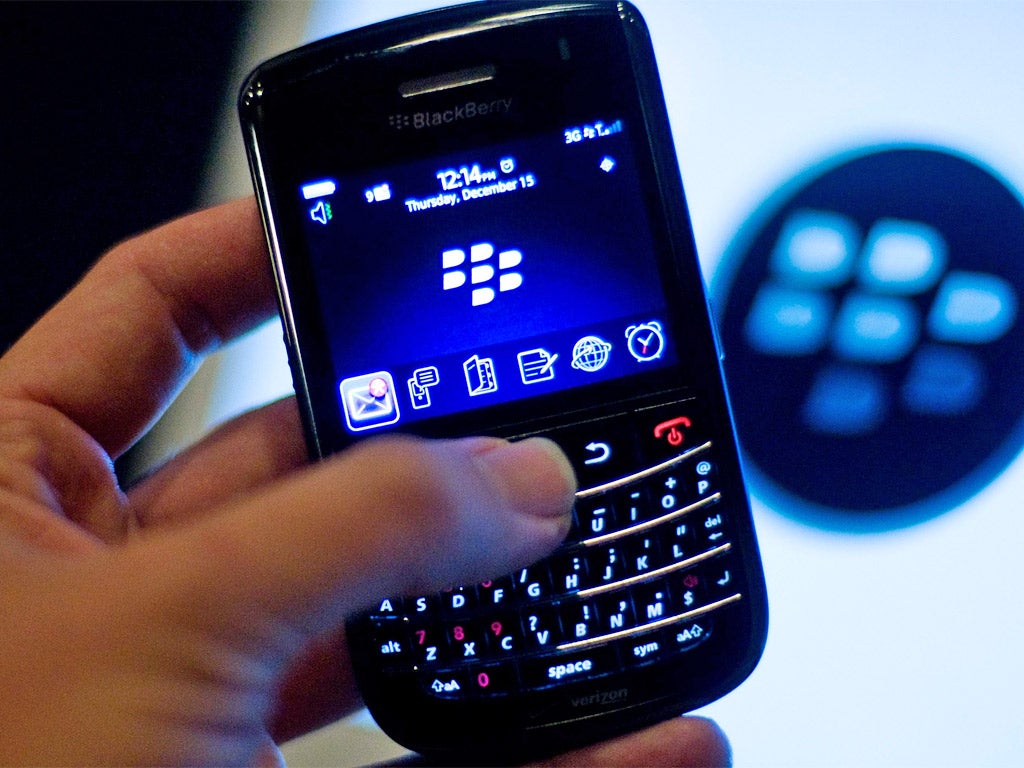When you just can't switch off...
The constant connectivity mobile technology gives us is more than just a distraction – it may be giving rise to a whole new range of personality disorders. Simon Usborne reports

When you wake up, do you check your emails on your phone in the time it takes your laptop to start up? Do you feel a buzz in your pocket when there is nothing there? Do you keep your Blackberry on the table at a restaurant, like a digital side plate? Do you struggle to finish a page of a book before your hand twitches and your brain starts imagining the status updates you're almost certainly not missing out on?
No? Then carry on, you're fine. But if you do any of these things and wonder what the technology in your hand might be doing to your head, read on (after you've checked your inbox).
The idea that the internet is diminishing our brains despite linking us to vast reservoirs of knowledge is almost as old as the web, and continues to divide psychologists and neurologists. "Is Google Making Us Stoopid?" asked The Atlantic magazine in 2008, triggering a great debate about digital literacy among those who had the attention span to read the 4,000-word article.
Now we consume technology by ever more mobile means, it sometimes feels as though technology is consuming us. An estimated 65 per cent of people in the developed world have a smartphone, tablet or laptop. By 2015, eight in 10 of all people are predicted to be connected this way – all the time.
Dr Larry Rosen, professor of psychology at California State University, calls these gadgets wireless mobile devices, or WMDs, and explores their potentially explosive effects in his new book, iDisorder: Understanding Our Obsession With Technology and Overcoming Its Hold on Us.
"We're in the middle of a grand experiment here," says Rosen. "We're at the early stages of understanding a society that carries the world in its pocket. It's good – you can always connect with someone – but it also means you're there, 24 hours a day... Our brains have not developed to be constantly engaged like this."
A self-confessed geek whose desk has four screens, Rosen is no Luddite, but he's concerned. In his book, he uses his own and other academics' research to show how the users of WMDs appear to display the symptoms of an array of personality disorders.
One example is narcissism, named after the hunter in Greek mythology who fell in love with his own reflection. To a narcissist, who would display traits including grandiosity, a need for admiration and a lack of empathy, social networks, Rosen writes, "provide a virtual playground for self-expression".
A study of 3,000 Twitter users by Rutgers University in the US identified two types of tweeters: Meformers and Informers. Participants were representative but 80 per cent of all of their tweets were about "me".
Rosen says: "Even people who would not behave like this in the real world feel comfortable presenting themselves that way online. Because they're able to do it behind a glass screen, it somehow changes the way they relate to the world." To reduce self-regard, Rosen suggests hesitating before firing off a tweet or update and asking yourself, "is this really the message I want to portray to the world?"
'iDisorder: Understanding Our Obsession with Technology and Overcoming Its Hold on Us' by Larry R Rosen (Palgrave Macmillan, £15.99).
Subscribe to Independent Premium to bookmark this article
Want to bookmark your favourite articles and stories to read or reference later? Start your Independent Premium subscription today.

Join our commenting forum
Join thought-provoking conversations, follow other Independent readers and see their replies